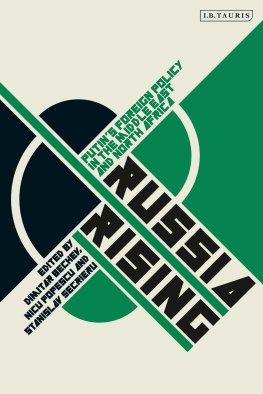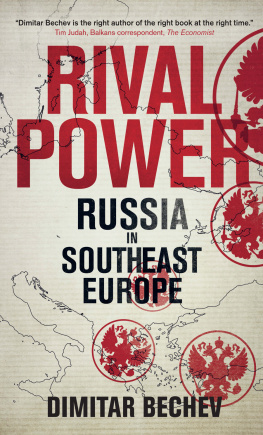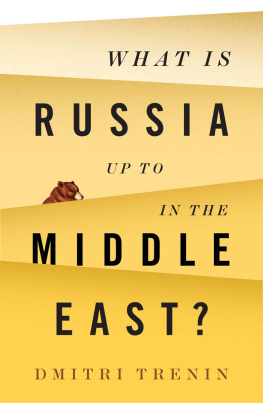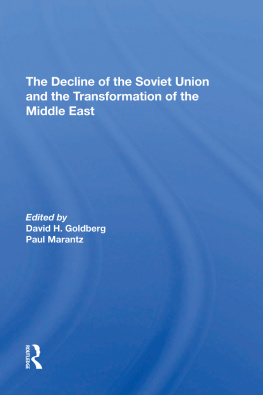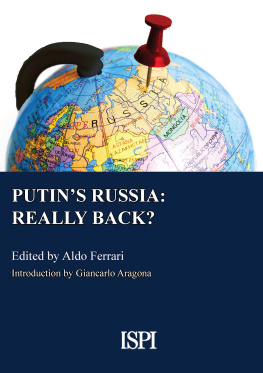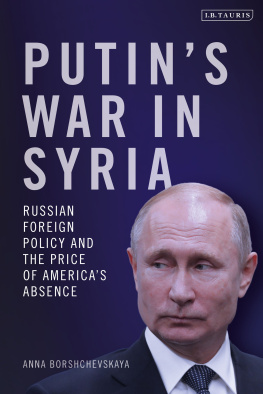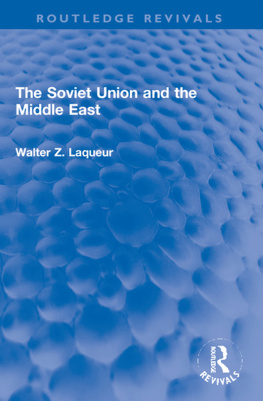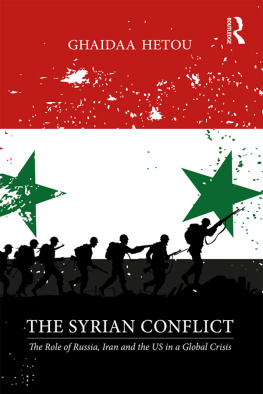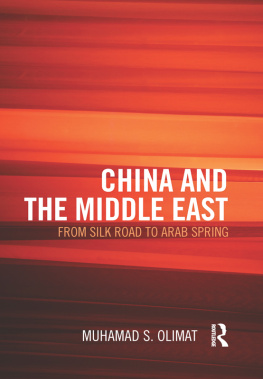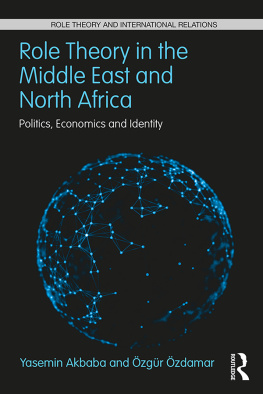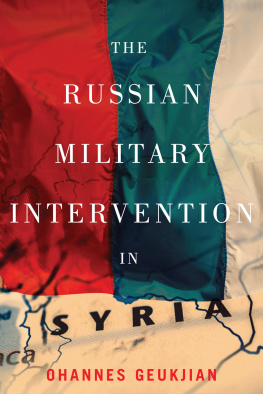Rethinking Statehood in the Middle East and North Africa
Alternative forms of government and statehood exist in the Middle East and North African regions. The chapters in this volume demonstrate this and explore the notion of power from a non-statist perspective, highlighting the limits of states and their governance.
Using empirical evidence from Syria, Libya, Lebanon, Tunisia, Iraq, Yemen, and Mali, the authors explore non-standard cases where power may be retained by a state but must be shared with a number of local actors, resulting in limited statehood and hybrid governance, which leads to competition and sharing of symbolic and political power within a state.
This book is intended to prompt a critical reflection on the meaning of governance. It will illuminate informal structures which deserve attention when studying governance and power dynamics within a state or a region.
This book was originally published as a special issue of Small Wars & Insurgencies.
Abel Polese is a Senior Research Fellow at Dublin City University, Ireland and Tallinn University of Technology, Estonia. He is a writer, development worker, scholar, amateur photographer, and musician who is mainly interested in the dichotomy between formal and informal modes and structures of governance. He is the author of The Scopus Diaries and the (Il)logics of Academic Survival: A Short Guide to Design Your Own Strategy and Survive Bibliometrics, Conferences, and Unreal Expectations in Academia (2018).
Ruth Hanau Santini is Assistant Professor of Politics and International Relations at Universit LOrientale in Naples, Italy, and Associate Fellow at the Middle East, Central Asia and Caucasus Studies Institute at the University of St Andrews, UK. She is interested in the domestic and international politics of the MENA region and, more broadly, in state-society relations, citizenship, and changing understandings of democracy. Her work includes Limited Statehood in Post-Revolutionary Tunisia: Citizenship, Economy and Security (2018).
First published 2019
by Routledge
2 Park Square, Milton Park, Abingdon, Oxon, OX14 4RN, UK
and by Routledge
52 Vanderbilt Avenue, New York, NY 10017, USA
Routledge is an imprint of the Taylor & Francis Group, an informa business
2019 Taylor & Francis
All rights reserved. No part of this book may be reprinted or reproduced or utilised in any form or by any electronic, mechanical, or other means, now known or hereafter invented, including photocopying and recording, or in any information storage or retrieval system, without permission in writing from the publishers.
Trademark notice: Product or corporate names may be trademarks or registered trademarks, and are used only for identification and explanation without intent to infringe.
British Library Cataloguing in Publication Data
A catalogue record for this book is available from the British Library
ISBN 13: 978-0-367-18088-1
Typeset in Myriad Pro
by RefineCatch Limited, Bungay, Suffolk
Publishers Note
The publisher accepts responsibility for any inconsistencies that may have arisen during the conversion of this book from journal articles to book chapters, namely the possible inclusion of journal terminology.
Disclaimer
Every effort has been made to contact copyright holders for their permission to reprint material in this book. The publishers would be grateful to hear from any copyright holder who is not here acknowledged and will undertake to rectify any errors or omissions in future editions of this book.
The chapters in this book were originally published in Small Wars & Insurgencies, volume 29, issue 3 (June 2018). When citing this material, please use the original page numbering for each article, as follows:
Chapter 1
Introduction Limited Statehood and its Security Implications on the Fragmentation Political Order in the Middle East and North Africa
Abel Polese and Ruth Hanau Santini
Small Wars & Insurgencies, volume 29, issue 3 (June 2018), pp. 379390
Chapter 2
From Westphalian Failure to Heterarchic Governance in MENA: The Case of Syria
Raymond Hinnebusch
Small Wars & Insurgencies, volume 29, issue 3 (June 2018), pp. 391413
Chapter 3
What is in a Name?: The Role of (Different) Identities in the Multiple Proxy Wars in Syria
Christopher Phillips and Morten Valbjrn
Small Wars & Insurgencies, volume 29, issue 3 (June 2018), pp. 414433
Chapter 4
Competitive Statehood in Libya: Governing Differently a Specific Setting or Deconstructing its Weak Sovereign State with a Fateful Drift Toward Chaos?
Philippe Droz-Vincent
Small Wars & Insurgencies, volume 29, issue 3 (June 2018), pp. 434455
Chapter 5
Between the Cracks: Actor Fragmentation and Local Conflict Systems in the Libyan Civil War
Andrea Carboni and James Moody
Small Wars & Insurgencies, volume 29, issue 3 (June 2018), pp. 456490
Chapter 6
Security Assistance in a Post-interventionist Era: The Impact on Limited Statehood in Lebanon and Tunisia
Ruth Hanau Santini and Simone Tholens
Small Wars & Insurgencies, volume 29, issue 3 (June 2018), pp. 491514
Chapter 7
Hizbullahs Shaping Lebanon Statehood
Daniel Meier
Small Wars & Insurgencies, volume 29, issue 3 (June 2018), pp. 515536
Chapter 8
Recognizing Fragmented Authority: Towards a post-Westphalian Security Order in Iraq
Damian Doyle and Tristan Dunning
Small Wars & Insurgencies, volume 29, issue 3 (June 2018), pp. 537559
Chapter 9
Competing for Control over the State: The Case of Yemen
Maria-Louise Clausen
Small Wars & Insurgencies, volume 29, issue 3 (June 2018), pp. 560578
Chapter 10
A Dangerous Method: How Mali Lost Control of the North, and Learned to Stop Worrying
Edoardo Baldaro
Small Wars & Insurgencies, volume 29, issue 3 (June 2018), pp. 579603
For any permission-related enquiries please visit:
http://www.tandfonline.com/page/help/permissions
Edoardo Baldaro is a Research Fellow in International Relations in the Department of Human and Social Sciences at the University of Naples LOrientale, Italy. He has been a Visiting Researcher at the CERI (Centre dEtudes en Relations Internationales) of Sciences Po Paris, France. His main areas of interest include critical security studies, NorthSouth relations, African politics, the redefinition of statehood in Africa, and the MENA region.
Andrea Carboni is a Manager of Middle East Research at the Armed Conflict Location & Event Data Project (ACLED) and a PhD candidate in Geography at the University of Sussex, UK. His research focuses on political elites and contentious politics in North Africa and the Middle East.
Maria-Louise Clausen is currently a Postdoctoral Researcher at the Danish Institute for International Studies (DIIS). She specialises in state-building interventions and the interaction between state and nonstate actors in governance, with a geographical focus on the Middle East, particularly Yemen, Saudi Arabia, and Iraq.

